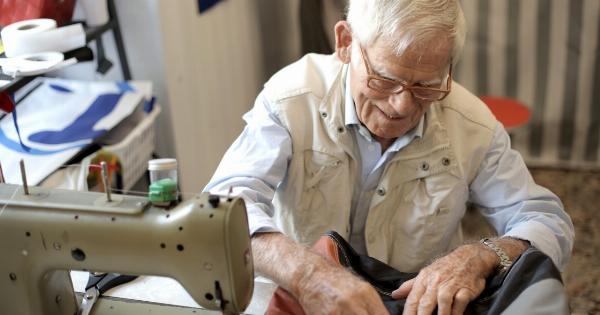Aging is a natural process that all living organisms go through. It refers to the gradual and inevitable physiological and psychological changes that occur in an individual over time.
The Science Behind Aging
Understanding the underlying mechanisms of aging is a complex subject, but several theories have been proposed to explain this phenomenon.
The most widely accepted theory is the “Free Radical Theory of Aging,” which suggests that the accumulation of reactive oxygen species, known as free radicals, causes damage to cells and tissues, leading to aging.
Cellular Aging
At the cellular level, aging is characterized by a gradual decline in the functionality of various cellular processes.
This decline is linked to a decrease in the capacity of cells to divide and repair themselves, ultimately leading to tissue dysfunction and the onset of age-related diseases.
Genetic Factors and Aging
Genes play a crucial role in the aging process. Some individuals are genetically predisposed to age-related diseases, while others have genetic variations that contribute to their longevity.
Scientists have identified certain genes, such as the FOXO3A gene, that are associated with a longer lifespan and a lower risk of age-related illnesses.
Lifestyle and Aging
While genetics may play a significant role in determining how we age, lifestyle factors also have a profound impact.
A healthy diet, regular exercise, maintaining a healthy weight, getting enough sleep, and avoiding smoking and excessive alcohol consumption are all crucial for healthy aging.
The Effects of Aging on the Body
Aging affects every system and organ in the body. The skin becomes less elastic and more prone to wrinkles and age spots. The bones lose density, increasing the risk of fractures.
Vision and hearing decline, and there may be a decrease in muscle mass and strength. Cognitive abilities also tend to decline with age.
Age-Related Diseases
As we age, the risk of developing certain diseases increases. Common age-related diseases include cardiovascular diseases, such as heart disease and stroke, cancer, Alzheimer’s disease, osteoporosis, and arthritis.
These diseases often have complex interactions between genetic, environmental, and lifestyle factors.
Current Research and Anti-Aging Strategies
Scientists and researchers are constantly exploring ways to understand and potentially slow down the aging process.
Various anti-aging strategies, such as caloric restriction, exercise, and pharmaceutical interventions, are being investigated for their potential to delay age-related decline and increase lifespan. However, it’s important to note that aging is a natural process, and complete reversal or prevention may not be possible.
Psychological Aspects of Aging
Aging not only affects the physical body but also has psychological implications. Many individuals experience a sense of loss, grief, and changes in identity as they grow older.
However, aging can also bring wisdom, increased self-awareness, and a deeper appreciation for life.
Embracing Aging Gracefully
Learning to embrace and accept the aging process is essential for overall well-being.
Cultivating a positive mindset, staying socially connected, engaging in meaningful activities, and practicing self-care can all contribute to healthy aging and a fulfilling life.
Conclusion
Aging is a natural and inevitable part of life. While the process of aging may bring various challenges and changes, it is possible to age gracefully and maintain good physical and mental health.
Understanding the biology behind aging, adopting a healthy lifestyle, and fostering a positive mindset are key to navigating the journey of aging with grace.




























